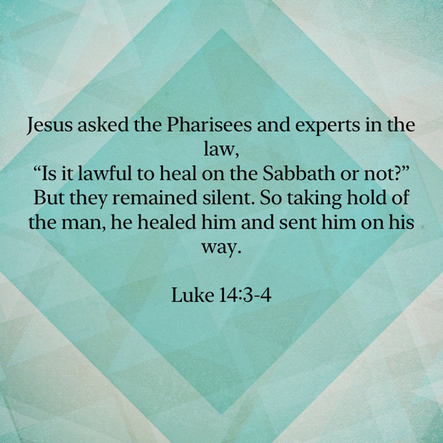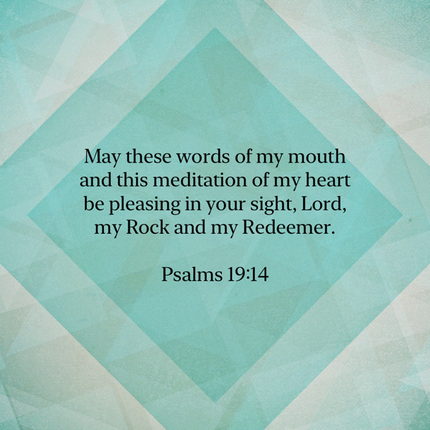|
Good morning! We're glad you've decided to read our Sunday School lesson for the fourth Sunday of Advent. We are not meeting in person for a Sunday School lesson this morning. Instead, we're having a special Christmas program. “Special Sunday School Hour for Christmas!" On the Sunday before Christmas (December 19) we’ll have a special time together! We’ll gather at 10:00 in the sanctuary and we will have a Christmas Carol Hymn Sing with a reading of the Christmas Story from the Bible! A relaxed fun time for all as we prepare for morning worship and the final week of Advent. Everyone is welcome! When meeting in person, we share our joys and concerns together. Take some time to consider your last week, and any prayer requests you have. If you would like, you can share with a comment on this post. When you are ready, you can use the prayer below (source) to get started. Prince of Peace, we seek you. In far off lands, your children flee their homes pursued by violence. In our community, we know not all our neighbors are safe from brutality. Prince of Peace, we seek you. You sent your son, Jesus, to bring your peace and comfort to the world. In this season of Advent, renew and strengthen us in a commitment to your peace that surpasses all understanding. Prince of Peace, we seek you. May your peace fill our hearts and grace our lips so that we might be agents of your peace in the world. Amen. Today's lesson is on Isaiah 9:2-7. This week's scripture lesson is a very familiar one at Christmas. Introduction and Lesson Context In the beginning God created physical light (Genesis 1:3-5). And then, at just the right time, Jesus arrived in the world as our spiritual light (John 1:1-5). Isaiah prophesied his coming centuries in advance, offering hope to all who would believe. Isaiah lived and prophesied in the eighth century BC, with access to the royal court. His ministry spanned the reigns of four kings. Isaiah 1:1 indicates a date range of about 740 - 760 BC. Today's text should be understood in the context of Isaiah 7-12, which is often called The Book of Immanuel. Its focus is on the promised blessing of Gods presence. "God with us," is the meaning of the word Immanuel (Isaiah 7:14; 8:8-10; Matthew 1:23). The immediate need for that divine presence in Isaiah's time was a war that saw Syria and the northern kingdom of Israel in an alliance against Judah, the southern kingdom of divided Israel (Isaiah 7:1). In reaction, the prophet Isaiah brought a message of hope to Judah's ungodly King Ahaz. The prophet encouraged Ahaz to trust the Lord in this matter. Isaiah even offered Ahaz a sign from the Lord (Isaiah 7:11). Ahaz refused to ask for a sign (Isaiah 7:12). But the Lord gave the "house of David," (represented by Ahaz) a sign anyway: a child to be known as Immanuel (Isaiah 7:13-14). Since Ahaz had refused to ask for a sign, the sign that was nevertheless provided therefore remained a "distant" prophecy for a remnant of God's people, not to be fulfilled until Immanuel truly would come in ultimate victory. The importance of the prophet Isaiah is seen in the fact that he is mentioned by name over 20 times in the New Testament -- more than all other prophets combined. Lesson The Great Reversal (Isaiah 9:2-5) The people had continued to walk (that is, live) as if in the darkest part of the night. They apparently had no desire to walk in the light. They preferred the land of deep darkness of mind and spirit bereft of God's presence. Yet it is on people who seem to prefer darkness that a great light comes. Light is a figure of speech for God himself or for his divine presence. The nation of Israel would be enlarged many times over in terms of both population and boundaries. Following Jesus' ministry, this expansion was caused by the great influx of Gentiles into the kingdom of God in fulfillment of the first promise of God to Abraham (Genesis 12:3). Our book says that verse 3b in our reading contains an uncertainty in the original Hebrew, and that not all translations are alike. The problem is that the Hebrew word for to it or to them, which here is translated their, sounds exactly like the Hebrew word for not. It would be easy for a copyist of Hebrew to write not when another person actually is saying to it/them, or vice versa, during verbal dictation. This uncertainty occurs over a dozen times in the Hebrew Old Testament. If to it was the original intent, then the idea is what we read in the NIV translation: "and increased their joy." The King James Version, by contrast, has, "and not increased the joy." The result is a rapid shift from the positive, "you have enlarged the nation," of verse 3a to the negative, "not increased the joy." One explanation of this shift proposes that the prophet at first is foreseeing the people dwelling in darkness; then the light dawns, and nation is multiplied. But that is followed by a time of difficulty (lack of joy). The imagery in the first part of this passage is of a disenfranchised, subjugated people. This would be the status of the Jews under Roman rule in the time of Jesus. But Jesus came to grant deliverance from bondage to a different, more oppressive master: sin. The Promised Child (Isaiah 9:6-7) The ultimate reason for joy is the birth of an extraordinary child. He is given to us by God. This is not said of other births, although this child was to have been a sign to Ahaz -- a sign he refused. Names are significant throughout Isaiah's ministry and in his confrontation with kings, especially Ahaz. The set of names we see starting in verse 6 reminds us of "throne names" used for newly crowned kings. These names give the nature and character of this child and his perfect rule. Wonderful Counselor. Isaiah foresaw someone who knows all the questions and has all the answers. This can only be God himself. Mighty God. The descriptive word Mighty is drawn from the world of war heroes. We might liken this to our term invincible, one who cannot be defeated. Mighty God is also used by Isaiah to refer to the Lord. Here, the name ascribes deity to the child. Everlasting Father. This exact title is found only here in the Old Testament. The Old Testament rarely uses the term Father to refer to God. It remains for Jesus to teach humans that God is our Father in a universal, loving, and holy way. This title emphasizes the Father's eternal nature and/or his control over eternity and time itself. Prince of Peace. War characterizes earthly kingdoms. The only son of David we know of who did not go to war was Solomon, yet Solomon established his reign with bloodshed. The promised child will be the ultimate Prince of Peace. It is a prince in the sense of a ruler of a people, a virtual synonym with king or monarch. He brings peace between God and humanity by way of reconciliation and redemption. The coming child would be in a different category fro any earthly monarch. His reign is characterized in five ways that no normal human ruler can ever measure up to. First, his reign is to be endlessly increasing, as opposed to the rise and fall of empires throughout history. Second, it is to be endlessly peaceful, never at war or preparing for war. It advanced because of its peace, not in spite of it. Third, it is to be tied to the most beloved ruler of Israel, King David. Fourth, it is to be established on true justice and righteousness, not on brute strength and aggression. Fifth, its existence and increase are guaranteed by the zeal of the Lord. This is to be a primary matter for the all-powerful God of Israel. Such zeal cannot be thwarted by anyone or anything. Conclusion The people living before Jesus lived in a state of darkness. Spiritually, they walked around with hands outstretched, hoping not to run into something dangerous. Fear and anxiety lurked in that state of unpredictability and loss in a deadly game of hiding from God, trying to keep sins in darkness. We no longer live in the darkness, hoping to avoid danger. We live in the light of Jesus' sacrifice, which has illuminated our paths! What then will you do? Will you continue to live as though you have not seen the light? Prayer Father, we thank you for your care for all the world. May we be worthy ambassadors of the kingdom of the Messiah. In Jesus' name we pray. Amen. Questions to Consider How will you ensure that what most causes joy for God is also what most causes joy for you? Of the four names ascribed to the coming child, which will most motivate your service to Christ this week? What actions could you take this week to bring your priorities and zeal in line with God's? Benediction This week's benediction is from the New Living Translation. Next week's lesson will be on Nahum 1:1-3, 6-8, 12-13, 15.
0 Comments
Leave a Reply. |
AuthorWe are a small, rural Presbyterian church in southwestern Pennsylvania. Archives
July 2024
Categories
All
|



 RSS Feed
RSS Feed